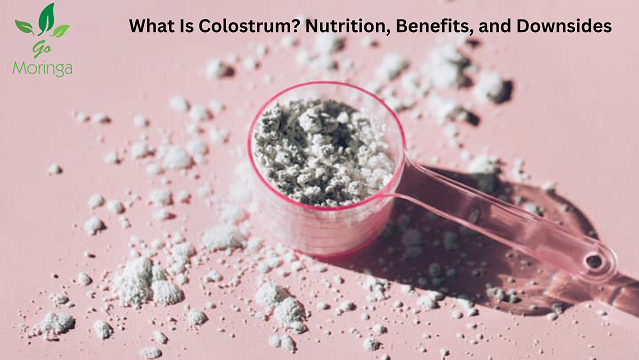Diet or Exercise: Which is More Important for Losing Weight?

Weight Loss: Navratri diet plan that can help you lose weight
October 13, 2022
Ways to Increase Your Fibre Intake
December 19, 2022What is more important, exercise or diet? It is a difficult dilemma that most individuals who embark on a weight loss journey frequently have on their minds. Although it is commonly believed that exercise and food are essential if your goal is to be in great form. Without one of the two, it is impossible to develop a toned body.
But the actual query, “What is more important?” still stands.
Let’s go over this in more detail:
What the research finds
According to several studies, your food is considerably more important for weight loss than your exercise program. You consume all of your calories from the meals you eat and the drinks you consume. However, suppose you do not restrict your caloric intake when exercising alone. In that case, only a part of the calories you consume will be burned.
There are three ways to squander energy:
- Breaking down food
- Basal metabolic rate
- Physical exercise
The basal metabolic rate uses 60 and 80 percent of the body’s overall energy production.
Physical exercise includes jogging, walking, and working out. According to the research, exercise is a subcategory of physical activity if just 10 to 30 percent of total calories are burned.
Only 5 to 15% of a person’s daily caloric intake is expended through exercise. Additionally, practice makes you hungrier.
Therefore, managing your diet is crucial if you want to reduce weight quickly and permanently.
You need to be on a low-calorie diet to lose weight, which means your body burns more calories than it takes in. Less calorie-dense food and liquids increased physical exercise, or a mix of the two can help you reach this goal.
You can even consult a dietician who can suggest to you the diet you should have according to your body type.
Advantages of diet
While both exercise and diet are crucial for weight loss, it’s typically simpler to control your calorie intake by making dietary changes than it is to burn a disproportionately large amount of calories through exercise.
The 80/20 rule, which asserts that food and exercise account for 80% of weight loss, may have gained popularity because of this.
If your daily calorie goal is 500, for instance, you may eat 400 fewer calories (or 80% less) by choosing lower-calorie foods, smaller portions, and fewer snacks. If so, only 100 calories (20%) must be expended through activity.
This is often simpler than attempting to lose 500 calories per day through exercise. This level of daily movement is necessary to burn off this many calories, but it is also time-consuming, hard on the body, and hardly sustainable.
For example, it would take an hour of moderate effort cycling on an exercise bike for a person weighing 154 pounds (70 kg) to burn 525 calories.
In the interim, they may save 520 calories by forgoing a venti Green Tea Frappuccino.
Focusing on eating whole, highly processed foods that are rich in protein, fiber, and good fats is a simple strategy to manage calorie intake and encourage weight loss without calorie counting.
| Also Read: Brain Foods: Include these in Everyday Diet to Work Smarter |
Advantages of exercising
Exercise aids in weight loss in a variety of ways.
Strength training assists in maintaining and increasing muscle mass, which over time can raise your metabolic rate and cause your body to burn more calories even when at rest. A solo strength training session could also raise your metabolic rate and keep it there for up to 72 hours.
Exercises that burn calories include walking, jogging, and cycling, especially when done for 30 minutes or more and at a moderate to low intensity. This can help to create a calorie deficit.
By controlling your hunger hormones, regular physical activity may also help you control your hunger. By doing this, you might avoid overeating and frequent snacking. However, excessive activity might increase appetite and danger of injury, so it’s preferable to exercise moderately.
Finally, frequent physical exercise gives you more freedom with your diet by boosting your metabolic rate and burning extra calories, which makes losing weight more fun and less restrictive.
Recommendation for you: Combining nutrition and exercise
The 80/20 rule is a useful generalization, but you are not required to adhere to it to the letter. Instead, concentrate on adjusting your food and exercise regimen in a healthy way that suits you.
For example, you might desire to meet 50% of your daily caloric needs through diet and 50% through activity. As a result, you’ll have to put in more time and effort working out, but you won’t have to restrict your diet as much.
The use of both food and exercise is the foundation for long-term, healthy weight loss.
In reality, a review found that the optimal strategy for achieving considerable weight loss was to combine a modest calorie restriction with exercise. Combining the two in some cases resulted in weight loss that was nearly five times greater than it would have been with just exercise.
A similar evaluation discovered that therapies focusing on modifications to either food or exercise alone did not significantly increase weight loss results compared to weight loss programs that included both diet and exercise components.
In the end, combining dietary adjustments with consistent exercise can aid in more significant and long-lasting weight loss.
To sum up
This does not, however, imply that you should quit working out. Exercise is crucial if you wish to strengthen your body and increase your flexibility. To stay healthy and fit, it is advised to exercise every day.


